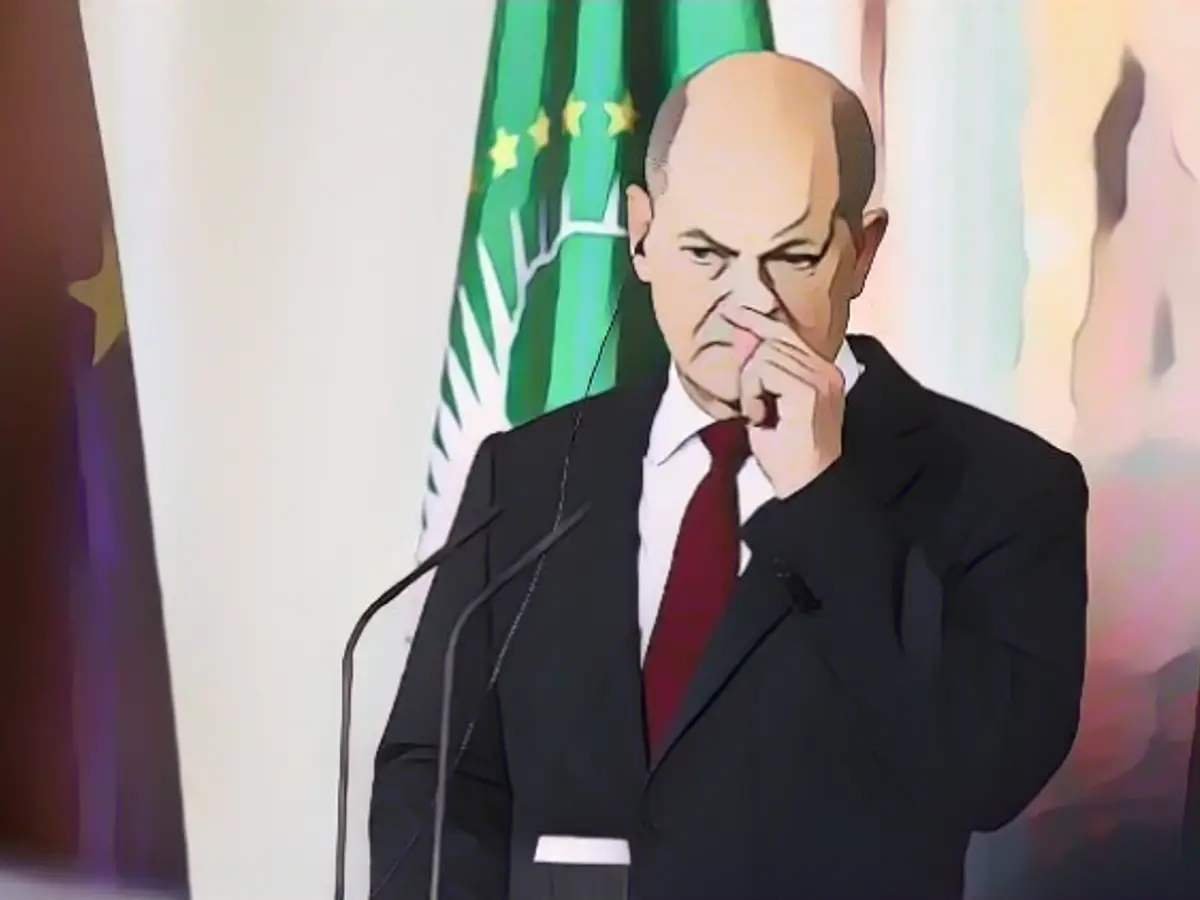Majority Views Scholz as Inadequate amid Budget Crisis
As per a recent poll, a substantial majority of Germans believe that Chancellor Olaf Scholz and his coalition partners from the SPD, Greens, and FDP are struggling to handle the budget crisis precipitated by the Federal Constitutional Court's ruling. Nearly two-thirds (66%) of respondents in the RTL/ntv trend barometer expressed skepticism about Scholz's competence, with only 24% maintaining faith in his capabilities.
Similar sentiments were echoed towards Economics Minister Robert Habeck of the Greens and Finance Minister Christian Linder of the FDP, with over 60% of participants doubting their abilities to navigate the financial challenges. It's worth noting that supporters of Scholz's SPD demonstrated the highest level of confidence (79%), while Finance Minister Linder enjoyed strong backing from FDP sympathizers (91%).
Public Trust in the Coalition Wanes
In regard to the coalition's ability to address the crisis, 69% of respondents expressed misgivings. Even a majority of FDP supporters (52%) voiced their doubts about the alliance's effectiveness, contrasted by optimistic views from SPD and Green voters (62% and 57%, respectively). Still, a notable 48% of respondents were in favor of maintaining the coalition, while 46% advocated for new elections. Interestingly, Eastern Germans showed the most support for fresh elections (53%).
Coalition Split and Public Opinion
The Federal Constitutional Court's ruling triggered significant tensions within the traffic light coalition, culminating in the departure of Finance Minister Linder and other FDP ministers. This turn of events has further eroded public trust and potentially undermined the coalition's ability to find a solution to the crisis.
The Budget Shortfall and Spending Priorities
With the federal government facing a €60 billion budget deficit over the next four years due to the Constitutional Court's decision, debates about spending priorities have intensified. German citizens are most likely to advocate for reductions in international aid (55%), followed closely by social spending (32%), German armed forces (30%), and climate protection (29%). Notably, infrastructure and transport attracted the least amount of support for cost-cutting measures (10%).
Political perspectives are also etched in these figures, with a majority of both FDP and CDU/CSU supporters wrangling for social spending cuts, and CDU/CSU followers giving priority to defense funding. On the other hand, the majority of Green supporters propose cuts to defense expenditure.
Enrichment Data
The current situation: Significant decline in approval ratings for Chancellor Scholz and the coalition, alongside growing concerns over fiscal responsibility and social investment.
Policies to address the shortfall: Proposed policies include debt brake reform, increased social spending, defense spending boost, and investment incentives.
Divided political perspectives: SPD prioritizes welfare state strengthening, Greens focus on ecological transition and defense spending, while FDP advocates for fiscal prudence and tax cuts.
[1] Source: Poetsch, B. (2025, January 01). "German Polls Show Olaf Scholz Confidence Sinks". .
[2] Source: "Bundestag Approves Defense Spending Increase to 2.2% of GDP". (2023, March 30). .
[3] Source: "German Constitutional Court Nullifies €60B Credit Authorization". (2023, March 17). .
[4] Source: "FDP Ministers Threaten to Quit Coalition Over Financial Policies". (2023, April 08). .
[5] Source: "Scholz Presents Revised Economic Policy Package on Tax and Social Issues". (2025, January 20). .








